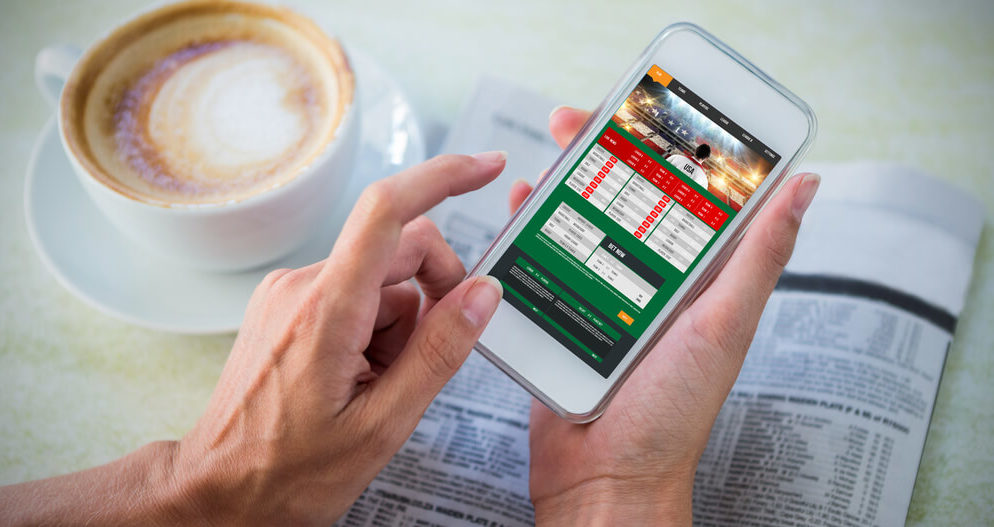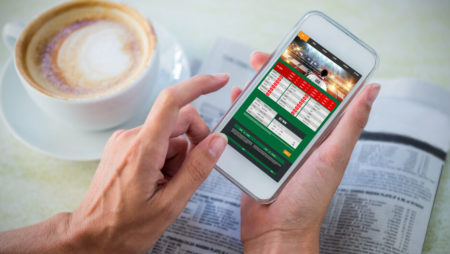

When mobile sports betting finally does come to New York State, Governor Cuomo wants to it run like the state’s Lottery. This means that mobile sports betting would be run by the state, or a single vendor contracted by the state, not by several operators competing for business.
Many proponents of mobile sports betting think this is the wrong path; it will simply create a confrontation with state lawmakers, who are considering bills that include a competitive, multi-vendor environment.
What we cover
Cuomo wants a monopoly on profit
“It’s early, but the data we have indicates that the lottery/monopoly model underperforms in revenue compared to competitive markets,” observed Chris Grove, managing director of Eilers & Krejcik Gaming, a national gambling industry research firm. “That model lags in both revenue and handle.”
However, Cuomo has embraced the state monopoly model, even though mobile betting is being considered to generate revenue for the state.
“The question isn’t whether or not we do mobile sports betting,” Cuomo said, as he released his 2021-22 state budget proposal. The new state budget must be approved by April 1. “The question is how and who makes the profit. This is very lucrative.”
To put it simply, it seems that Cuomo wants the state to maintain a monopoly on any profit generated by mobile sports betting.
Team Cuomo estimates that mobile sports betting can generate $500 million in annual revenues, and the governor wants state control to ensure that most of that money goes to the state. The state of New York, under Cuomo’s governorship, has racked up a $15 billion deficit.
“I believe the people of the state should get the revenues,” said Cuomo. “This is not a profit maker for private interests to just collect more tax revenue. I want the actual revenue from the sports betting.”
Recently, Cuomo has signaled some support for mobile sports betting, which is a change from prior years. Previously, he took the stance that an amendment to the state Constitution would be required to legalize online gambling.
Cuomo’s stance on mobile sports betting could hurt the state’s Native Americans
In 2019, Governor Cuomo did sign a law allowing retail sports betting in New York State’s four licensed Upstate casinos in New York. That move also allowed retail sportsbooks to be operated by the state’s Native American tribes.
In partnership with Caesar’s Entertainment, sports betting is available at the Oneida Nation’s three casinos in Central New York. The Akwesasne Mohawk Casino in Northern New York near Hogansburg also features retail sportsbooks, as do the three casinos run by the Seneca Nation in Western New York.
The Oneidas have voiced tribal concerns about Cuomo’s state monopoly plan for legalizing mobile sports betting. The compacts that the Native American Tribes operate under guarantee them exclusivity when it comes to gambling in their geographic regions of the state. The compact could be compromised by a state monopoly on mobile sports betting. However, according to the compacts, the tribal casinos are also allowed to operate any type of gambling allowed at the non-tribal casinos. So there could be a work-around for the tribes.
Overall, gaming proponents welcome Cuomo’s change of mind
While the state’s gaming proponents welcome Cuomo’s change of mind, they are skeptical of his support for state-run mobile sports betting.
“I think we all agree we need to maximize the income for the state, but also, at the same time, stabilize the economic situation for the state’s casinos,” the owner of Tioga Downs near Binghamton, Jeff Gural said. “I think the competitive market is the best option to maximize the revenues, I don’t think the lottery model will work.”
Gural hopes that there is still time to change Cuomo’s mind, and to sign on with a more competitive model.
“I think we can address this with the governor and point out that competition helps everyone,” said Gural. “That way we can all have success together.” Gural also owns Vernon Downs racetrack and casino in Oneida County. Vernon Downs has horse betting but not sports betting.
Mobile sports betting bills introduced this year in the New York State Assembly and the New York Senate both call for competition. Those bills accommodate more than two dozen vendors for sports betting apps; two each for the four commercial casinos and two each for the three Native American Tribes that operate sportsbooks.
“I look forward to working with the Governor and his administration to efficiently get mobile sports betting off the ground for the people of New York,” said State Senator Joseph P. Addabbo, the chair of the Senate’s gaming committee and primary sponsor of the bill. Addabbo has been urging Cuomo for years to support online gambling.
Addabbo says the multi-vendor approach is superior, since it could be expanded to include sports stadiums and other venues, leading to not only increased revenues, but also more jobs in the state’s gaming industry.
New York’s current sports betting model
Currently, in New York, each of the four commercial casinos has a different vendor running its sportsbook. For example, Tioga Downs is partnered with FanDuel, while the de Lago Casino is partnered with DraftKings. Bet365 is partnered with Resorts World Catskills near Monticello, and Rivers Casino and Resort in Schenectady is partnered with Rush Street Gaming.
But other states use a different model for online gambling. Small states, such as Rhode Island and New Hampshire, often go with the monopoly or single-vendor model, while big states generally embrace competition. In New Hampshire, DraftKings has a monopoly on online gambling, and it pays the state 51% of its revenue.
Neighboring New Jersey, for example, has become the largest sportsbook market in the country, with around 20 different online sportsbooks. As a result, New Jersey has been setting record levels of both sports betting revenue and taxes, and most of that comes from mobile sports betting.
A smaller state may have a lower level of betting, but could make up for that with a higher tax rate. A big state could set a lower tax rate but make up for that with more gambling.
New Jersey had $6 billion in total sports betting revenue in 2020, but much of that came from New Yorkers crossing the state line. Analysts estimate that New York would need to generate $20 billion annually to meet Cuomo’s $500 million expectation in revenue.
In addition to the tax revenues, states can collect from gambling operators, another revenue generator is licensing fees. A big state like New York could generate as much as $30 million for each license issued.
Currently, the bills in the New York State Legislature include a $12 million licensing fee and a 12% tax on mobile sports betting, compared to 8.5% for the state’s casinos.
Another big issue for New York is making any new sports betting system attractive enough to keep its citizens from going to New Jersey, or illicit gambling sites online.
The question is how to implement mobile sports betting in a way that not only maximizes the value for the state, but also the state’s casinos and sports bettors.








